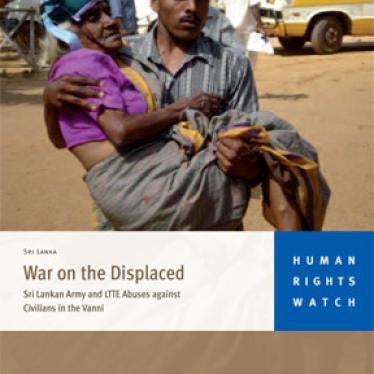The decisive re-election of Sri Lanka's Mahinda Rajapaksa yesterday presents the president with a momentous choice. He can continue the Sinhalese nationalist policies that defined his first term, or he can address the serious grievances of the minority Tamil population that lay behind the country's 26-year-long civil war. That turnout in the predominantly Tamil north-east was only 30 percent, compared to 70 percent of eligible voters generally, reflects those grievances.
The first choice would be politically easy - and very damaging to Sri Lanka's future. The conflict with the separatist Tamil Tigers, which ended in May, left much of the north and east in ruins and displaced hundreds of thousands of people of all ethnicities. Continuing social and economic policies that are designed largely to benefit the Sinhalese majority will engender further resentment and continue ethnic tensions.
Sri Lanka's future would be better served by a strategy that seeks support from the entire population - that means tackling the tough political issues that remained after the fighting. These include local governance in the north and east, the return of the displaced population, and broad-based economic development. But for the many victims, and families of victims, of wartime atrocities, the general relief that the war is over is not enough. They would like to see justice done.
According to United Nations' estimates, at least 7,000 civilians, virtually all ethnic Tamils, died in what one UN official called a "bloodbath" in the final months of the conflict. Evidence that emerged during the fighting of indiscriminate government airstrikes and shelling of civilians and of the Tamil Tigers' repeated use of civilians as human shields has strengthened over time.
An impartial Sri Lankan organization has published compelling personal accounts of horrific civilian suffering. A UN special envoy this month presented strong forensic evidence that a video allegedly showing Sri Lankan soldiers executing prisoners is authentic. And the US State Department in October submitted to the Sri Lankan government a report that was a virtual catalogue of abuses by both sides.
Last May, President Rajapaksa promised UN Secretary-General Ban Ki-moon that the Sri Lankan government would investigate alleged laws-of-war violations. Since then, the government's only actions have been to convene a team of lawyers tasked with answering the various allegations and to denounce the UN's top human rights official and others who have pressed for investigations. Unfortunately, Secretary-General Ban has yet to endorse calls by senior UN officials for independent investigations, feeding impressions that Rajapaksa had taken him for a ride by making a promise he did not intend to keep.
The Rajapaksa government's foot-dragging has been no surprise. Throughout the armed conflict with the Tamil Tigers, serious rights violations have been ignored rather than prosecuted. Various governmental commissions have led to nothing. It's long been clear that only an international investigation is going to make any progress.
The United States has been an important voice promoting human rights in Sri Lanka. During the fighting the US urged the Sri Lankan government to abide by the laws of war. President Barack Obama called for the government to free a wrongfully imprisoned Tamil journalist, and he has since been released on parole. The administration also strongly criticized detention camps holding several hundred thousand Tamil civilians who had fled the fighting.
However, the Obama administration has been silent on the need for an independent international investigation of wartime atrocities. While Chinese and Russian opposition make the creation of an investigatory body by the UN Security Council unlikely, there is nothing to stop the US and other concerned governments from publicly urging Secretary-General Ban to establish an inquiry for Sri Lanka on his own, as he did in Guinea with strong US backing. It is time for Ban to call the Sri Lankan government's bluff.
International pressure could make Rajapaksa's electoral victory a victory for justice as well. Sri Lanka's long-term future depends on serious-minded recognition of basic rights for all the country's ethnic communities. Addressing past crimes is a crucial component of that process.
James Ross is legal and policy director at Human Rights Watch.






